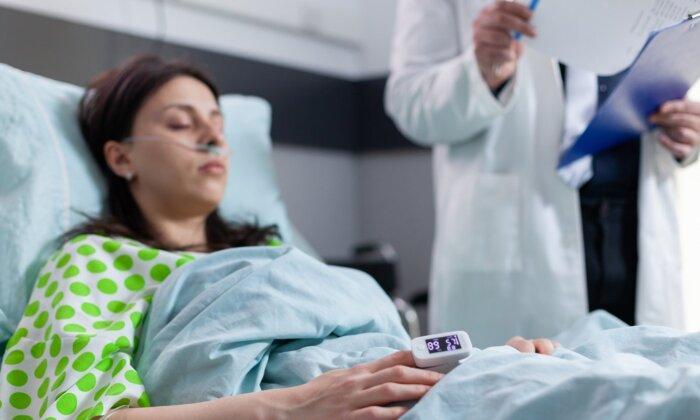
As the science rolls out, we seem to be converging on the standard profile for the common cold. Not to surprising if we have a militarized version, rapidly losing potency as a matter of course.
The best defense against all this is high doses of vitimin C or ascorbic acid. i use a heaping teaspoon myself and suspect i shook off even the militarized form. i have it with grapefruit peel extract made by boiling them peels. This adds natural quinine as a bonus.
however yo ulook at it the pandemic is going away.
The Immunocompromised Recover From COVID-19 More Quickly Than Expected: Study
One study shows that even the most vulnerable populations can clear the COVID-19 virus within a couple weeks rather than several months.
(Freepik)
By Amie Dahnke
https://www.theepochtimes.com/health/the-immunocompromised-recover-from-covid-19-more-quickly-than-expected-study-5578165?
Bucking expectations that individuals with compromised immune systems would have prolonged cases of COVID-19, a new study reports the median time for these patients to be ill with the infection is just nine days.
The study, published in The Lancet Microbe, provides better insight into which populations are truly at higher risk of prolonged infections, suggesting some of the fear surrounding COVID-19 infections among the most vulnerable could be unwarranted.
The research team looked at individuals who came down with the omicron variant between April and October of 2022. Patients were enrolled in medical centers in Michigan, Tennessee, New York, Minnesota, and Missouri. Enrollees were at least 18 years old, had been diagnosed with an immunocompromising condition, and had to have tested positive for COVID-19 within the past 14 days. A little more than half were female (61 percent), and the median age was 60 years old.
The patients were divided into five groups based on the type of immunocompromised condition they had. Eighteen patients had a B-cell dysfunction, such as leukemia or lymphoma; 59 had had a solid organ or stem cell or bone marrow transplantation; five had AIDS; 23 had non-B-cell malignancies; and 45 had autoimmune or autoinflammatory conditions.
Most participants had received at least two vaccine doses, and nearly all were symptomatic at the time the study began. It is important to note that the patients didn’t fight the virus on their own; during the study, some received treatment to either prevent or help alleviate COVID symptoms. Nearly half (45 percent) of patients took remdesivir, an antiviral that stops the virus from circulating in the body; five patients received molnupiravir, which inhibits replication of SARS-CoV-2, the virus that causes COVID-19; 20 patients received Paxlovid; and 30 received bebtelovimab. The U.S. Food and Drug Administration (FDA) has since rescinded the emergency use for bebtelovimab, as the drug does not neutralize the omicron subvariants.
The researchers found that, of the 150 individuals analyzed, just 25 percent had a prolonged infection lasting three weeks or more, as indicated by a PCR test, and only 8 percent still had a positive viral culture at 21 days or more.
Prolonged Infection Less Common, Reducing Possibility of More Mutations“In contrast to a lot of case reports, we were finding that very few people had prolonged infection,” said lead study author Dr. Adam Lauring of the Division of Infectious Disease at Michigan Medicine.
Regarding the immunocompromised, the study points out that people living with AIDS and those with B-cell cancers were more likely to have COVID-19 for longer than those diagnosed with autoimmune diseases or non-B cell cancers. Additionally, the research team observed that of the 59 patients who received an organ transplant with T-cell immunosuppression, only one experienced an infection lasting longer than 56 days.
The 8 percent who had longer infections were those receiving immunosuppressing therapies like rituximab or CAR-T therapy. These treatments target B cells and manipulate antibodies, making the body work harder to fight viruses.
The study may also allay some earlier fears that prolonged cases of COVID-19 would spur more mutations of the virus. “A lot of what makes a successful virus is its ability to escape immunity,” Dr. Lauring said. “However, immunity is heterogeneous—what might lead a virus to escape the immune system in an immunocompromised patient vs. patients at the population level are different.”
The results of the new study are contrary to previous research indicating that immunocompromised patients are at a higher risk for prolonged infection. “A large number of case reports and case series have documented that a subset of patients who are immunocompromised are at risk for very prolonged infection, lasting hundreds of days,” the research team wrote. “Because nearly all these studies are retrospective, with varying levels of ascertainment bias, prospective studies are needed to fully define this problem and those at risk.”
No comments:
Post a Comment